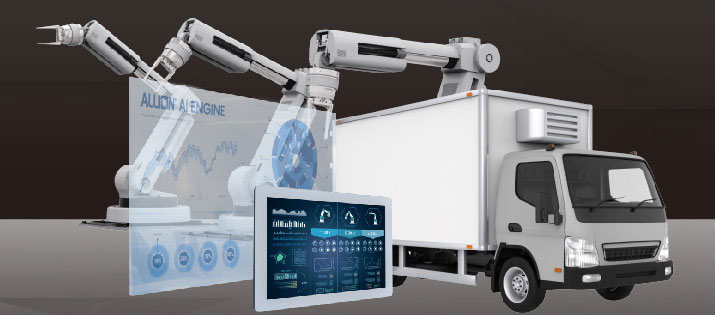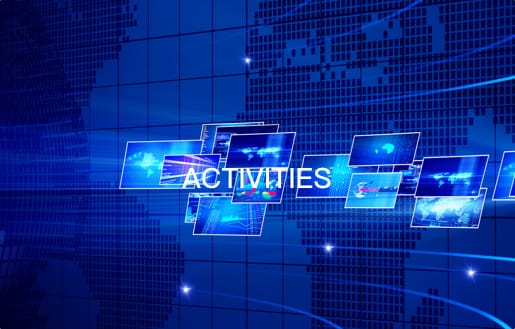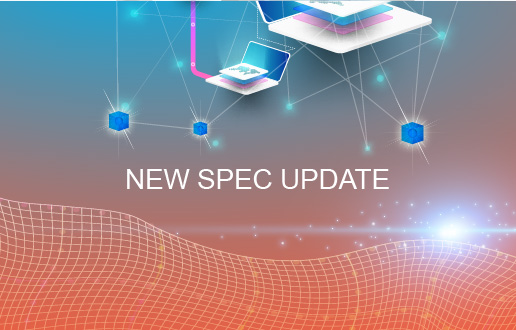Large format displays are designed to connect with a series of multiple monitors that are displaying the same images simultaneously. This is due to conference rooms or other commercial spaces requiring this function. This function is similar to the DisplayPort Daisy Chain function, a screen display function that allows multiple monitors that are connected to display the same image or allow multiple monitors to form one cohesive image. Therefore some manufacturers will add the HDMI Repeater function to these products to mimic this. The HDMI Repeater function doesn’t generate or display HDMI signals by itself, it instead processes the HDMI signals that are received and sends them somewhere else. However, large format displays are quite expensive and usually are only needed in special scenarios. How manufacturers can effectively avoid potential issues is what we will discuss in this article.
Can HDMI Monitors Be Synchronized Only With the HDMI Repeater?
Allion has partnered with many major display brands and manufacturers in the past. With our decades of testing experience, we found the biggest problem with these products is the inability to display images properly. Theoretically, the HDMI Repeater must correctly identify the receiving capabilities of the downstream displays and also transmit signals from upstream displays (source) to downstream displays (sink). This is how the HDMI Repeater provides a normal signal throughout the monitors. However, does this actually happen during use?
The figure below shows a monitor that supports 4K video. When the monitor receives the 4K signal from an upstream display, it will send the same signal to a downstream display. However, the downstream display only supports 2K video, leading to a monitor that is unable to display any image.

Allion Solves This Issue in Seconds
If HDMI monitors want to avoid this compatibility issue, our consulting team recommends that manufacturers use one of the solutions provided below.
Solution 1:
Allow the HDMI display to have signal conversion capabilities, so it can convert the 4K signals into a 2K signal. The 2K signal will then be transmitted to a downstream display.
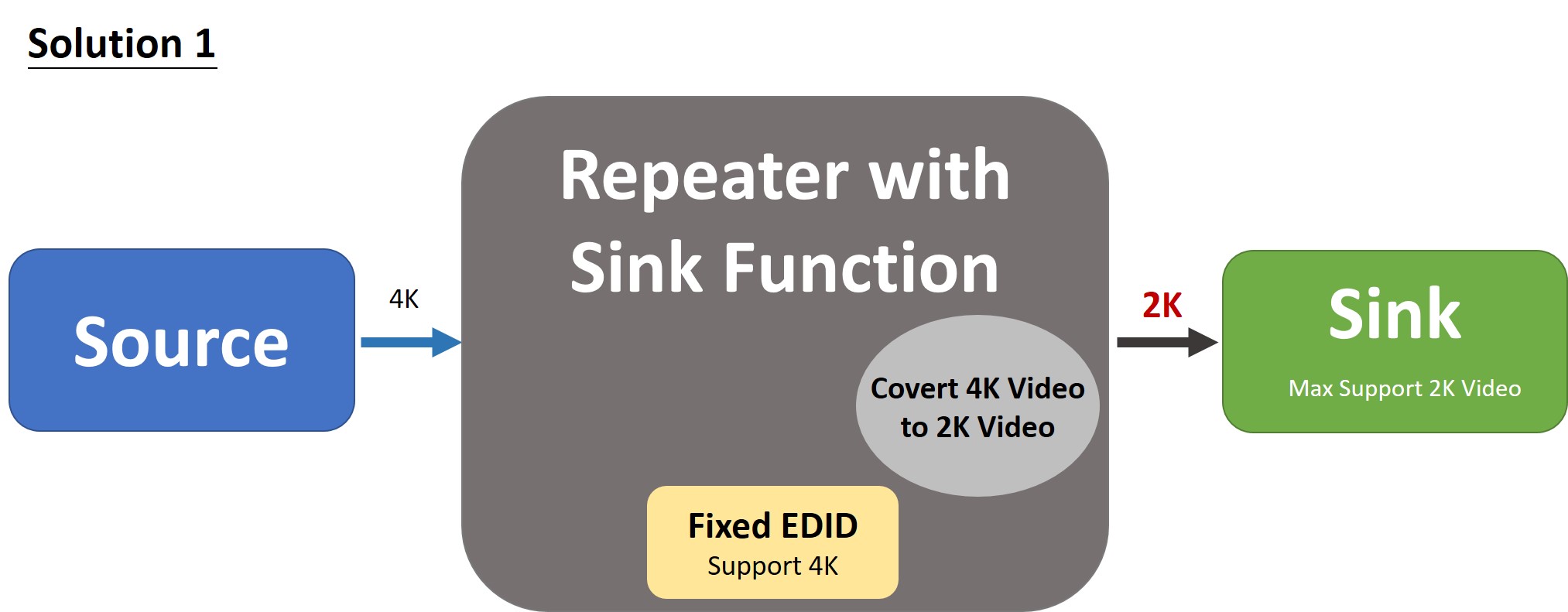
Solution 2:
Allow the HDMI display to be able to read the EDID (Extended Display Identification Data, a display information standard developed by VESA used to describe resolution, color gamut, and other information) of the downstream displays and be able to integrate the downstream EDID and its own. This will allow the upstream display to transmit 2K signals downstream based on the EDID contents.
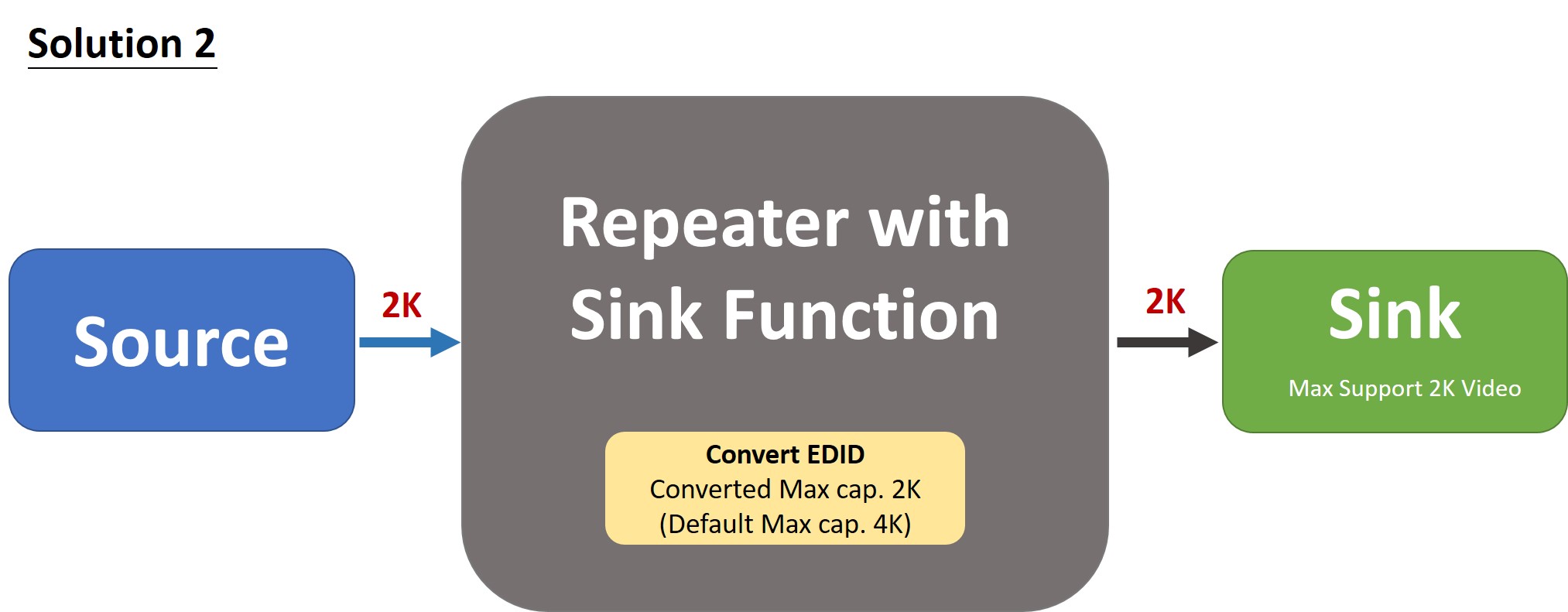
In addition to providing HDMI Repeater certification testing, Allion also provides Repeater EDID testing to help identify potential compatibility risks.
Faster, Easier, Better! Your Most Trusted Display Product Testing Consultant
Allion is an HDMI certification company that provides customized testing and consulting services. We’ve worked with clients in the industry for more than three decades, eliminating their problems and reducing the risk of product returns.
- A Comprehensive HDMI Compliance Test Solution: Passing certification tests can ensure signal transmission quality. It also allows manufacturers to avoid being audited by the HDMI Association
- Customized Testing and Consulting Services: HDMI monitors with repeaters were designed because of market demands. HDMI certification alone cannot guarantee the quality of your products. Allion can help clients conduct and pass compatibility tests, user scenario simulations, and more, ensuring these products are compatible with one another.
Faster
With our professional testing technology and decades of experience, Allion can provide clients with fast and accurate results and help clients shorten their design certification schedule. Allion is a HDMI certification laboratory that helps clients quickly pass their certification specifications. We also have a complete range of HDMI testing equipment to ensure product compatibility, providing quality control for manufacturer’s products.
- A complete collection of testing equipment and decades of experience can help clients with fast verification planning
- Quickly assist clients in obtaining HDMI certifications
Easier
Allion has a complete collection of HDMI hardware testing equipment and testing environments. With our testing solutions, we can ensure qualitative, quantitative, and reproducible results for each client. Our services can easily help you improve the overall quality and performance of your products.
- More accurate test results
- Professional issue isolation and debugging support, allowing clients to have an easier time with product development
Better
Allion has many professional teams with the knowledge to design quantitative testing methods and user experience verification testing. Our teams can help you meet user expectations while also meeting certification requirements. Providing product modification suggestions and adding the requirements of various international associations into the product development process is also a big part of our services. This can further enhance product quality and ensure our clients’ products are up to standards with international associations.
- Provides a better and more complete experience for brands to establish ODM ecosystem plans
- Provides more complete user scenario testing solutions
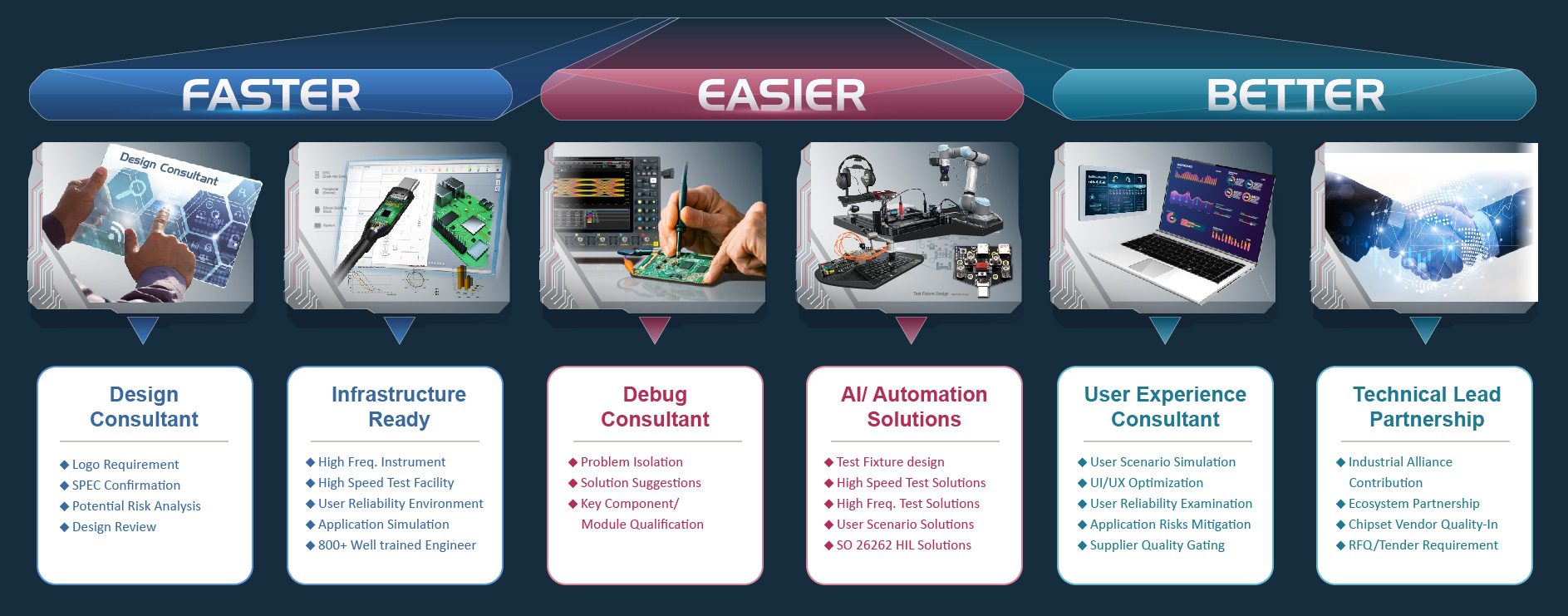
If you have any questions about display devices or its ecosystem, please feel free to contact us through the online form.











